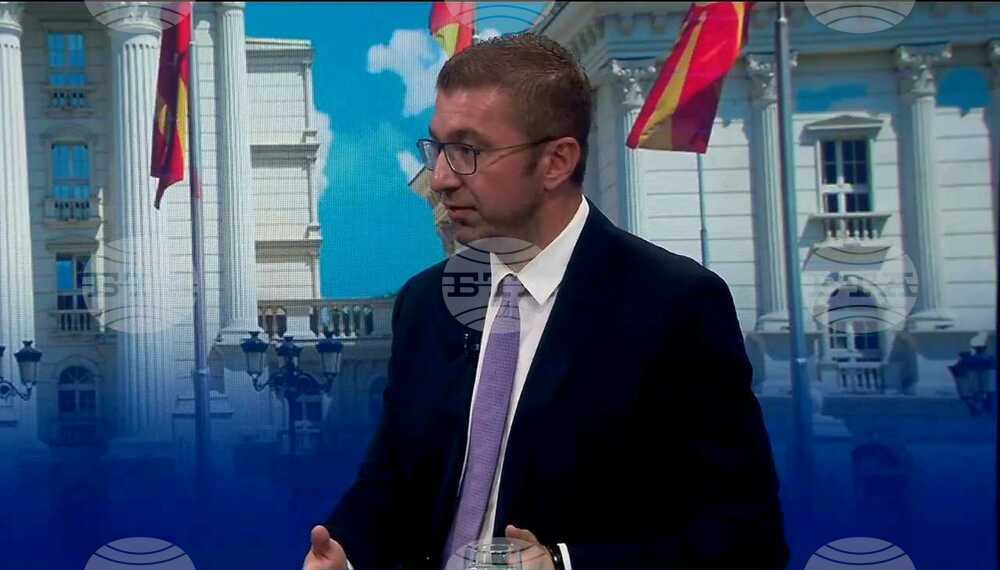site.btaNorth Macedonia's Prime Minister Willing to Discuss Controversial Issues with a Regular Bulgarian Government


North Macedonia's relations with Bulgaria are relaxed and coordinated, the two countries are partners in NATO, but they hold different views on some matters, according to the Prime Minister of North Macedonia, Hristijan Mickoski.
Interviewed by Sitel Television on July 16, Mickoski said he talked with Bulgaria's caretaker Prime Minister Dimitar Glavchev on the telephone to coordinate the work for putting out a wildfire in Ograzhden Mountain, which started in North Macedonia and spilled over into Bulgaria. Mickoski noted that he is prepared for an argumentative discussion on the controversial issues between the two neighbours, but he doubts that he can talk with a caretaker government about how Skopje can move forward on its European path.
The Prime Minister said he has met with very influential opinion-makers in Washington, think-tanks, governors, senators, former and current, and Skopje's position on a real start of membership negotiations with the EU remains clear and unchanged. "Not because we are stubborn, but because someone made a mistake earlier on. Someone 'suspended' the opposition and Parliament, thinking it was possible to issue an ultimatum to the opposition and consider the job done. This is not the way it should be done. We are prepared to seek a solution to the problem, but not under these conditions. The Macedonian people do not accept that, and I am paid by the people to work in their best interests. Seventy-five per cent of them say it is unacceptable. We have prepared a position, we are ready to talk, but I cannot accept an amendment to the Constitution to inscribe several hundred Macedonian citizens who describe themselves as members of the Bulgarian community here. Why should we do it? For what? Explain it to me, please. It is written in the framework [for North Macedonia's accession negotiations with the EU], and therefore I must accept it? This is not the way it should be done. This is an ultimatum. If someone's human rights are limited, it is not the politicians' job to judge. There is an institution for it. The judgments of the European Court of Human Rights are 14 to 0 in favour of the conclusion that the rights of the Macedonian minority in Bulgaria are limited or even non-existent. If this [amending the Constitution] is my internal matter, who has the right to interfere in my internal affairs? And if this is a condition, does it mean we should sacrifice our identity? Tomorrow they can raise another condition," Mickoski argued.
According to him, the public in North Macedonia has been misled into thinking that a condition about amending the country's Constitution is included in the framework for the negotiations with the EU. He insisted that there is no written record of a requirement that constitutional amendments must be adopted and implemented.
Asked about a meeting with Greek Prime Minister Kyriakos Mitsotakis, which people in North Macedonia expected but which did not materialize during the NATO Summit in Washington earlier in the month, Mickoski said he had not announced such a meeting. He was ready for it, but Mitsotakis' agenda was obviously too busy. Mickoski was evasive about whether Mitsotakis had anything to say during the closed-door part of the NATO Summit about the controversy over not using the constitutional name of the Republic of North Macedonia. Mickoski said he cannot provide details about what was discussed at the meeting, but noted that he was in a "convenient position" back then and made three statements, and part of what he said caught the attention of the others present in the room.
/VE/
news.modal.header
news.modal.text